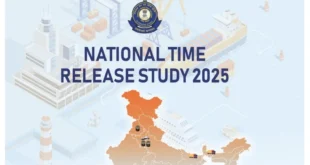The British PM faces a tough test to win support in Europe for her Chequers plan
Desperate times call for desperate measures. British Prime Minister Theresa May last week flew to France to meet French President Emmanuel Macron at his holiday home, to lobby for her Cabinet’s version of Brexit that emerged from a retreat at Chequers, her own country retreat, a few weeks ago. The proposal scraped through in the House of Commons. And having just about won the support of her own Tory party MPs, Ms. May and her Cabinet colleagues are now taking the show on the road, hoping to sell the plan to individual European leaders. Both the EU and the U.K. are against a hard border between Ireland and Northern Ireland, key to the Good Friday Agreement that has ensured peace on the island since 1998. However, beyond offering vague language on “regulatory alignment”, it is unclear how Britain proposes to achieve this while exiting the EU Customs Union and Single Market. The EU had proposed that Northern Ireland remain in a common regulatory area with the Republic of Ireland and the EU. This was rejected by London. Mr. Barnier wrote that the EU would be willing to “improve the text” of its proposal on the Irish border question.
However, his article poured cold water on another core element of the Chequers plan: a post-Brexit free trade area between Britain and the EU for goods alone, leaving trade in services for a separate agreement. The U.K. and the EU would collect tariffs on goods on each other’s behalf where needed. Mr. Barnier pointed out that goods and services are often inextricably linked, and that the U.K. cannot expect to have free movement of goods without free movement of services, people and capital — the ‘four freedoms’ of being part of the European Single Market — nor, as an external party, expect to be allowed to collect customs duties on the EU’s behalf. The timing of Mr. Barnier’s comments, just as Ms. May was trying to win support on the continent, will throw a spanner in the works for her. Mr. Macron is one of Ms. May’s toughest Brexit customers, and is unlikely to present a divergent view from Brussels. France has a lot to gain from parts of the financial sector leaving the U.K. after Brexit. A Brexit deal must ideally be in place before a European summit in October; otherwise Britain is at risk of crashing out of the EU in March 2019.
Source : https://www.thehindu.com/todays-paper/tp-opinion/brexit-troubles/article24610550.ece
Check Also
Biofuels and the Food vs. Feed Dilemma
GS3 – Environment Context India’s growing emphasis on biofuels is raising alarm over the diversion …
 Chinmaya IAS Academy – Current Affairs Chinmaya IAS Academy – Current Affairs
Chinmaya IAS Academy – Current Affairs Chinmaya IAS Academy – Current Affairs


